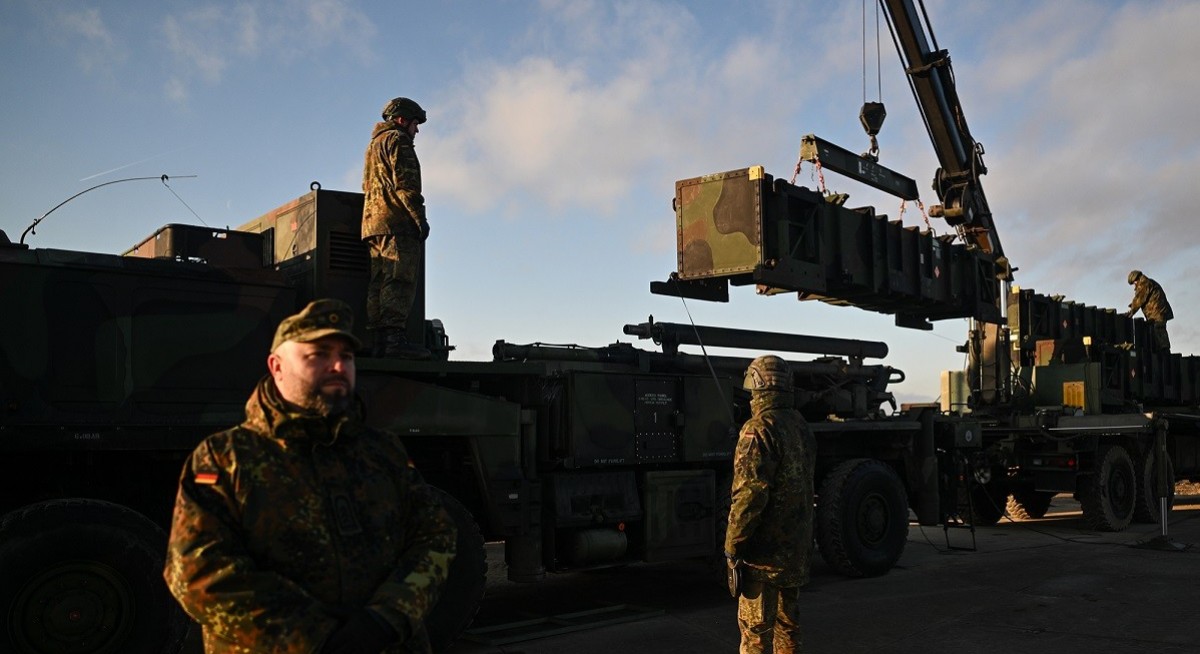The US provides most of NATO’s intelligence, surveillance and reconnaissance, including satellites, which has proved critical in the response to Vladimir Putin’s invasion of Ukraine. Replacing that would cost Europe US$4.8 billion, according to the report, “Progress and Shortfalls in Europe’s Defence.” European officials say the US must continue to provide that under a peace deal, so Ukrainian and European forces can be alerted to any Russian breach.
“That has to be part of the deal because... without the eyes, you’re blind,” said Veronika Stromsikova, Director General of Security and Multilateral affairs in the Czech Republic’s foreign ministry, who represents the nation in the coalition meetings at director level.
Europe also lacks indigenous long-range integrated air- and missile-defence hardware that can shoot down ballistic missiles — a mission handled almost exclusively by US-made Patriot systems. Trump is allowing Europe to buy Patriots for Ukraine, and Germany has provided batteries from its own stocks. The French-Italian Eurosam consortium produces the SAMP/T, which has some anti-ballistic missile capability as well.
NATO Secretary General Mark Rutte on Thursday said in a speech at the IISS Prague Defence Summit that European allies need to increase the number of air and missile defence systems by five-fold.
See also: Thai reformist party pledges to revive ‘fifth tiger’ economy as election nears
“Air defence capabilities are absolutely vital,” Swedish defence minister Pal Jonson said on the sidelines of the conference.
Europe has made significant investments in recent years, he added, but the challenge is now “to transform economic clout into combat power” by speeding up the continent’s industrial base.
Twenty-six of the 35 coalition members have said they will contribute to guarantees for Ukraine, either in terms of troops or military hardware and training. French President Emmanuel Macron said Thursday that US support for the measures will be finalised in coming days; Trump, however, used a call with leaders that day to say Europe should put more economic pressure on Russia and China, according to Finnish President Alexander Stubb.
See also: Trump says US closely monitoring Iran, mulling options
Putin has said repeatedly that he will not agree to western troops in Ukraine.
Trump, who has previously ruled out sending US troops to Ukraine, has promised to provide some form of backstop, including intelligence and potential air support, without providing details. But the US said this week it would cut hundreds of millions of dollars’ worth of funding for programs that help train and equip the armies of European countries that border Russia.
The coalition’s primary focus is on regenerating Ukraine’s army, so it becomes a “steel porcupine,” able to defend itself if Russia re-invades after a ceasefire. Allied nations will potentially train Ukrainian soldiers within Ukraine, and supply it with military hardware, Stromsikova and Jonson said.
Europe Still Spends Big on US Defense Firms | The value of contracts signed by NATO Europe almost doubled in 2022-25
Rutte said for its part, NATO needs to use its increased defence spending on space capabilities, as well as armoured vehicles, tanks, artillery shells, drones and cyber weaponry.
“Cash alone can’t provide security, we need the capabilities: real firepower, heavy metal, as well as new tech,” he said. “That’s what our defence industry across the alliance needs to deliver, faster than ever.”
European leaders say they are eager to impose tougher new sanctions on Russia — but even then, they say, US involvement is key to give them real teeth. Trump has hit India with heavy secondary sanctions over Russian oil purchases, but so far has not applied more on Russia directly.
To stay ahead of Singapore and the region’s corporate and economic trends, click here for Latest Section
“We need to apply diplomatic pressure on their alliances, we need to put economic sanctions on their suppliers and supply chains, try to limit their war production, try to limit the incomes which they use for feeding this war and paying for this war,” said Czech Republic Chief of the General Staff Karel Rehka, who also joins military planning meetings for the coalition.
Meanwhile, Russian forces are massing outside Pokrovsk, a Ukrainian-held stronghold in the eastern Donetsk region, and European leaders fear a renewed offensive.
“Russia has not shown a willingness to engage in serious negotiations and on the contrary is stepping up its violence and aggression inside Ukraine so I think the prospects for a ceasefire or a peace agreement look rather dim,” Jonson said. “There will not be peace in Ukraine until we step up, increase delivery of defence support packages to Ukraine, and until we increase the sanctions on Russia. That’s the road to peace: increase pressure on Putin.”
But to do so, the IISS report notes, the continent must rely on the White House for both military and economic might. Indeed, German Prime Minister Friedrich Merz said on Friday that Europe lacked the clout to force Russia to end the war.
“We are currently unable to exert sufficient pressure on Putin to end this war,” Merz said in an interview for his conservative party’s YouTube channel. “We depend on American help.”




